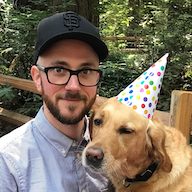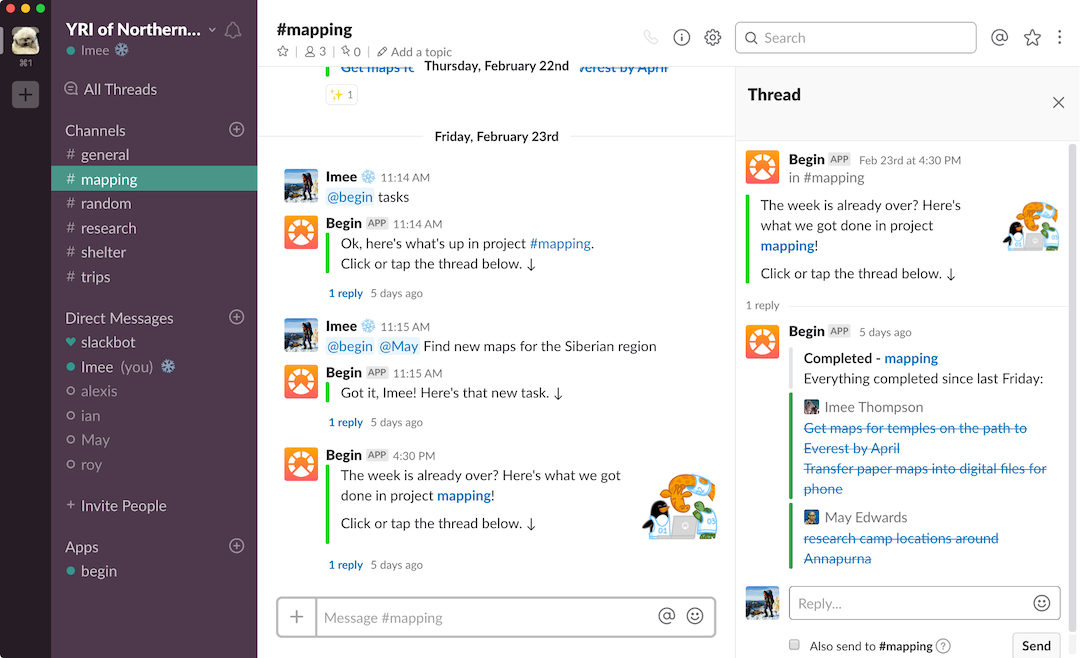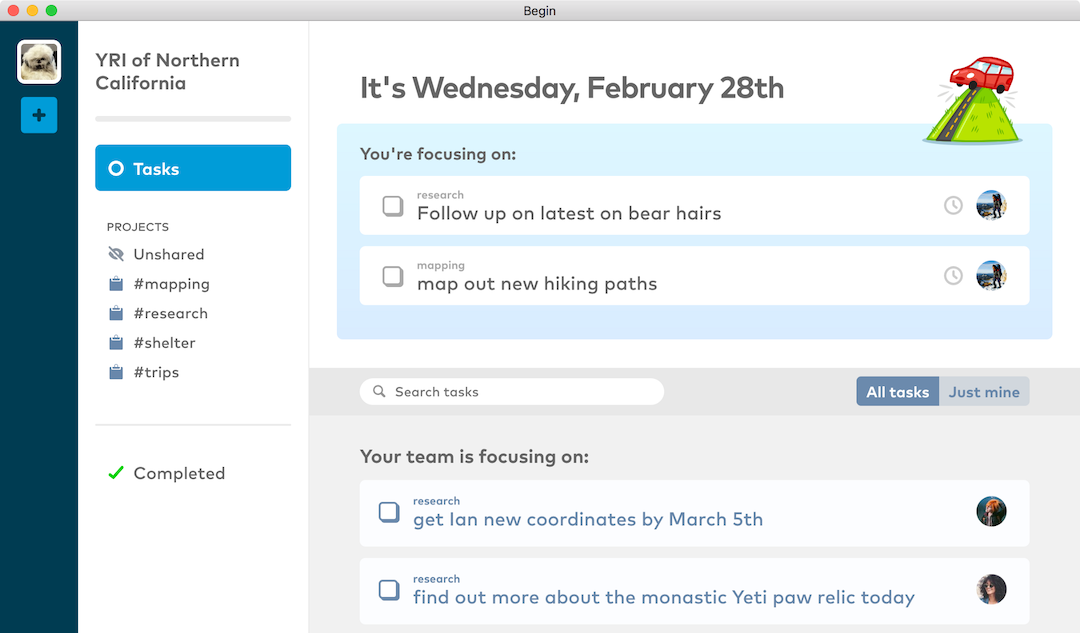Let's Begin!

by Ryan Block
@ryan
on

Today’s tools for managing work are broken
You love your team and your teammates.
You want to do your best work, and help everyone do their best work, too.
You’ve probably tried a few work tracking tools (i.e. task managers, issue trackers, etc.) over the years.
And if you’re anything like us, you’ve probably discovered how broken they are:
→ Task managers erode morale
Task managers are heavy, bloated, slow, and just plain discouraging to use. The most important task is the one that just got added, the context switching is endless, the backlog grows infinitely, and forward momentum feels fleeting. Teams feel entrapped, not empowered.
→ Task managers aren’t designed for how modern teams work
Task managers have steep learning curves, in part because they’re designed for productivity wonks — the kinds of folks comfortable thinking in complex, algorithm-like GTD flows.
These tools rely heavily on their users learning complicated task management methodologies — or inventing their own. And then there’s the inevitable disagreement in how to use them, and the fallout from ongoing human error.
→ Proportionally few members of the team use a task manager
For all of the above reasons (and so many more), this class of tools tends to be adopted by only a fraction of a given organization — like engineering or sales. Invariably, our teammates in design, accounting, comms, admin, marketing, and so many other disciplines, are largely left behind, or asked to get onboard with an industrial-grade technical issue tracker.

Hold up. Aren’t our tools are supposed to make us more powerful?
Aren’t they supposed to work for us, and not the other way around?
Naturally we started to wonder:
- What if you could work with tasks the same way you already communicate with your team: in plain language?
- What if the endless list melted away, and you always knew what needed your focus?
- What if everyone had ambient visibility into what the team was working on, and when things got done?
- What if you could make tasks with (and for) teammates without having to stop your conversation with them?
- What if someone made a tasking tool that just got out of your way?
So we got to work. And here we are today.

Say hello to Begin!

We built Begin for how modern teams communicate and work
We believe the future belongs to simple, yet powerful tools that are native to the connective tissue of modern teams, like work messaging.
The days of heavy, bloated software that requires you to juggle workflows and context-switch are over. The best interface is no interface — just type (or speak) from where you already are.
Managing your work should be as easy as having a conversation.
Creating tasks in Begin is driven by simply typing in plain text — in real time, without interrupting what you’re doing to fill in a complex form.
The ability to drive our most commonly used tools without heavily relying on traditional UI controls doesn’t just make us faster. It allows us to better focus on the work at hand and minimize distractions.

We built Begin to focus on focus
Easy to use software for tracking work doesn’t help if you still feel overwhelmed by all the work to be done.
It’s just not enough to build simple tools. Our tools should be designed to make our lives a little simpler.
Begin is designed to help you stay focused on what’s important. The Focus List, a dedicated daily task list, is always at the top of Begin, ready with the handful of things that matter most right now.
And focusing on a task automatically makes it visible to your teammates as your current status in the team’s shared Focus List.
Transparency shouldn’t just be an aspiration, but a natural byproduct of tools designed with people in mind.
Begin is design-driven and customer-centric
We designed Begin for everyone on your team, and took human factors deeply into consideration from the outset.
We challenged ourselves to make Begin as utterly simple as possible, while still having everything you need to be effective and efficient.
To us, simplicity doesn’t just mean doing fewer things better. It also means trying to stay out of your way while you do whatever it is you do best.
Of course, software is never complete, and we take every single piece of feedback into account. We’d really love to know what you think of Begin, and how it could be better!
Begin is fast
We built Begin for speed and we want that speed to make you faster, so you can spend more time focused and in flow.
Speed means Begin starts and responds quickly. It also means that Begin should minimize its interruptions, and be available wherever you are in Slack.
Our Mac and web apps are lightweight and screaming fast. Creating tasks is near-instantaneous — as it ought to be!
We think there’s no faster way to track your work — in or out of Slack.
Begin is easy to set up and use
Setting your team up with Begin is as simple as adding an integration to Slack.
You’ll be done with setup in under a minute. Seriously!
Once you’ve added Begin, it auto-magically creates projects from the channels you invite it to, and creates tasks from the messages you mention it in.
Creating tasks for teammates works in exactly the same way: just mention Begin and your teammate.
No context switching required, no steep learning curve, and no unnecessary complexity.
I’d say you can learn how to use Begin in 30 seconds, but if you’ve read this far you already know everything you need to get started!
Ready to give it a try?
Just click here! ↘

Thank you
There are so many folks deserving of gratitude in helping us get to the starting line.
First, we’d like to thank every teammate and friend that had a hand in helping us get this thing up and running, including: Veronica Belmont, Rob Ellis, Angelina Fabbro, Jen Fong-Adwent, Lydia Katsamberis, Eric Lin, Aaron Ng, Daniel Raffel, Teddy Worcester, and the wonderful folks at Jolby & Friends.
Of course, there would be no Begin without our incredibly intelligent and kind investors: Phil Libin, Spencer Lazar, and Niko Bonatsos at General Catalyst, the teams at OATV, Launch, Slack Fund, SV Angel, and 415, and our angels, including Matt Cutts, Peter Rojas, and Kevin Rose.
We’d also like to shout out all the amazing folks at Slack who offered a helping hand (or two, or three) along the way, including: Amir, April, Bear, Brian, Buster, Ceci, Dillon, Helen, Jason, Jassim, John, Julie, Paige, Roach, Sachin, Stewart, and Taylor (to name just a few)!
Most importantly, Brian and I are eternally grateful to the team launching Begin today: Amber, Kristofer, and Spencer, we can’t even imagine having gotten here without you. We’re grateful and honored you’ve taken this journey with us, and extra thanks to your families.
Now what?
For our team, the real journey starts. We’re here to help you do your best work.
And for your team? Well, we hope that means you’ll give Begin a try!


“To begin, begin.” –Wordsworth
Thanks to xnoɹǝʃ uɐıɹq.
